
The Past, Present and Future of Podcasting with James Cridland
James Cridland is Editor of Podnews, the daily podcast newsletter. He is a radio futurologist - a writer, consultant and public speaker on the future of radio.
This interview was originally written in French for issue 3 of “Le Podcast Magazine” (1st magazine dedicated to the Podcast in France).
Benjamin Bellamy : How did you get started in the radio / podcast industry? What's your story?
James Cridland : Well, I always wanted to get involved in radio and audio. Even when I was at school, I was at a boarding school in the middle of nowhere and I worked out how to grab a little radio transmitter and produce a pirate radio station which was great fun. I’ve always wanted to play around with audio and radio and that sort of thing. And so as soon as I left school my first job was working in a radio company in Yorkshire in England — and this will really show how old I am — my first job was carrying the mobile phone for one of our reporters. Mobile phone was one of these great big things, you know, it was incredibly heavy carrying it around. It was a bit like a suitcase and I had to carry that around. And when I wasn't doing that, I was editing magnetic tape. So yes, long, long, long time ago. And I've been involved in audio, radio and podcasting ever since.
BB: You also worked at the BBC?
JC: Yes, I've worked in lots of different commercial radio stations across the UK. I worked for the BBC as well for a couple of years. And so I moved to the BBC after working at Virgin Radio where I ended up launching in 2004 the first mobile phone app in the world to stream radio stations. So we launched it on six different Symbian phones, this is how long ago that was.
We may have launched it on more phones than we actually had listeners. It wasn't a tremendous instant runaway success, but we didn't have Wi-Fi in phones in those days. So of course it was very expensive to stream audio and stream radio. So that was a very difficult thing.
And while I was at Virgin Radio, I wrote the first RSS feed for a daily podcast from a radio station in the UK. So we jumped into podcasting very early, and in fact six months earlier than Apple did.
So it was great and exciting when Apple got involved in podcasting. We'd already been there for six months. It was quite validating in a way. That was a great experience.
And then I went to work for the BBC for a couple of years looking at iPlayer, which was at the time their radio player and their radio app.
And after that I've been working for myself but being a consultant to lots of different companies across the world, including a few in France, helping people understand where the future is going in terms of audio consumption.
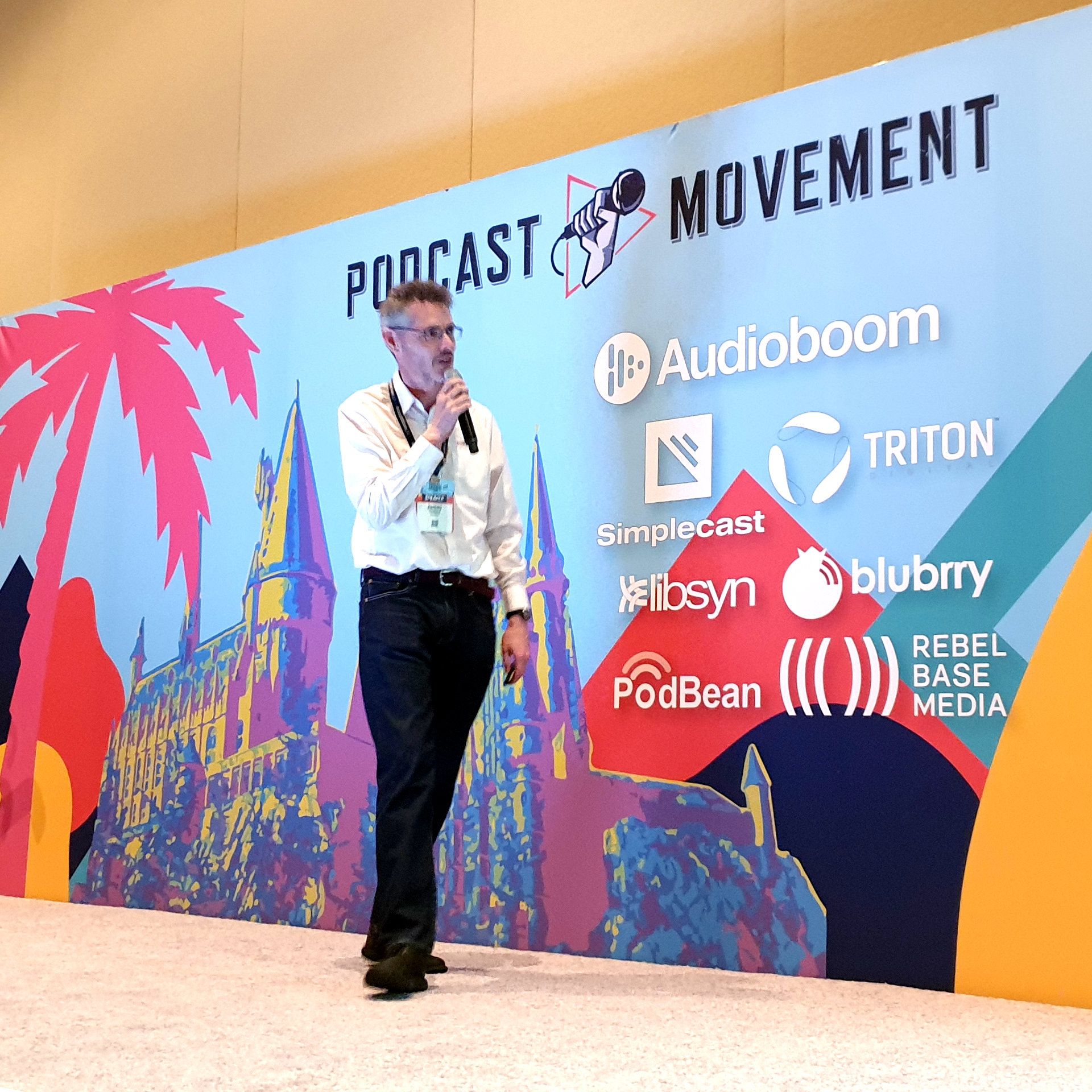
BB: So at the time when you were working for the BBC, you were already in the podcast ecosystem?
JC: I'd been involved tangentially in podcasting for quite some time, having worked at Virgin Radio on a number of different podcasts, but basically taking radio content and making them available in terms of podcast content. And we tried a lot of innovative and exciting things there. And then, yes, mostly my work at the BBC was around making sure that the catch-up radio worked very well. So you could go back and listen to any show streaming from the 50 radio stations that we ran.
I've always been interested in radio and audio in all of its forms, and podcasting is just another way of reaching audiences. Very early, I went to the first podcast conference in London, which was in 2004. And I remember being shouted at, because there were all of these indie podcasters there, all these “native podcasters”, as you would call them in France, who were there, and they really resented a large commercial radio company being involved in the whole podcast ecosystem. And I was there talking about seeing if we could free up some of the music that we had to be pod safe, and so you could play them on podcasting, and sharing all of our figures, and sharing how we produced all of these systems to automatically produce all of these shows. But people weren't particularly interested in that. They were more interested in shouting at me and saying “Why are you involved in this?!”. And so I've been very aware from then on, that actually there are some people in the podcast ecosystem — and I think this is particularly the case in France — some people who are particularly annoyed that commercial radio and public radio are involved in podcasting, but doing it a different way. There are quite a lot of people who would rather it was just left to the independents. I think there's space for everyone. And that's what excites me about it.
BB: What are your activities now? What is your job?
JC: My job is writing the Podnews newsletter every single day. That's what pays my salary these days. I came up with the idea of doing the newsletter in 2017. I was at a big radio conference.
And I was chatting with a friend of mine, and he was saying “Where do you get your podcast news from?”, and I said “Well, you know, it's not really anywhere, is there?”. And we had a quick chat about it. I then came home again and I thought, maybe there's something there in doing a newsletter about podcasting. I'd already done a weekly newsletter about radio and the future of radio so I knew how to do that bit. I ended up being in the right place at the right time, starting a newsletter about podcasting. And so I've been doing that ever since late May 2017. That's what I now earn the majority of my money from. I'm still doing a little bit of radio consultancy work. But it's mostly doing podcast stuff and writing the daily newsletter.
BB: You get the money from the sponsors. Is that correct?
JC: Yes. So there's sort of three income streams there.
There's sponsored things that appear in the newsletter.
There is classified advertising, which anybody can afford to go into that newsletter.
And then there are supporters as well, people that believe in what I do and pay a monthly amount of money, and there's value for value as well. So it's a good mix of both advertisers, but also people who are supporters of what I do and find an awful lot of value in the sort of thing that I end up doing every single day.
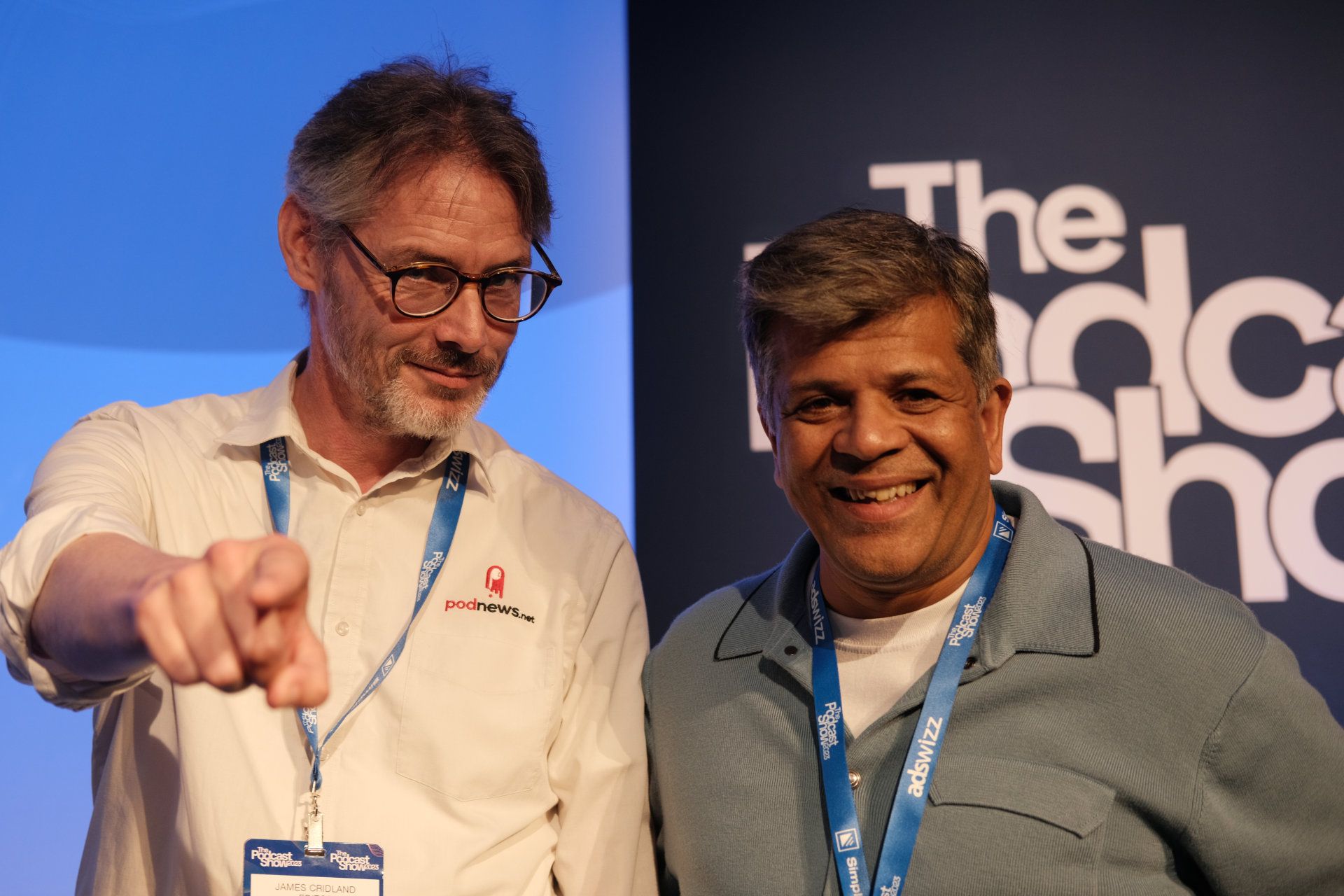
BB: This is the daily newsletter. There is also a weekly podcast, which used to be called “Podland”, but is now called “Podnews Weekly Review”. Can you tell me why you changed the title?
JC: Sam Sethi, my co-host, will tell you that the reason why I called it Podland is that I didn't know whether it would be any good or not and I didn't want to put the Podnews name onto something that would be crap. But at the time, Podnews was actually running a weekly newsletter, if you knew where to look. So I didn't really want to call it the Podnews Weekly because that would be confusing. So I really wanted to point out that it is a different thing.
It's a review of the week's news. That's what it's there for. So I wasn't quite comfortable with calling it anything to do with Podnews. But the closer that I worked together with Sam, the more that I understood that actually it was really helpful that it shared the same brand, that we were able to pull our resources and do things under that brand. And that's what we ended up doing, so we changed its name in the beginning of this year and that's been very helpful. It's allowed people to understand that I'm not just somebody that sort of hides away and doesn't really have much of an opinion in the newsletter, which has a daily podcast as well. That's also had a really nice, you know, effect in terms of growing that audience.
So Podnews daily is exactly the same as the newsletter, it's me reading out the newsletter.
We keep all of the guests to the Podnews Weekly Review, where most of the time it's Sam interviewing them and I also interview a fair amount of people for the Podcast Business Journal, which is a very business focused newsletter that I send out every single week.
BB: How do you approach selecting guests or topics to ensure engaging and informative episodes?
JC: Quite a lot of the time it's whoever Sam wants to talk to. And Sam is a fascinating character. He knows an awful lot of people. He's been involved in the online world for many, many years. He used to work for Netscape, used to work at TechCrunch, he knows lots of people at Microsoft. So he has a tremendous address book and is very good at reaching out and asking people to talk to them. We focus on people who we find interesting and that are doing interesting things, which is one of the reasons why you've been on so many times. There are really interesting folk out there and it's really nice to end up talking with them.
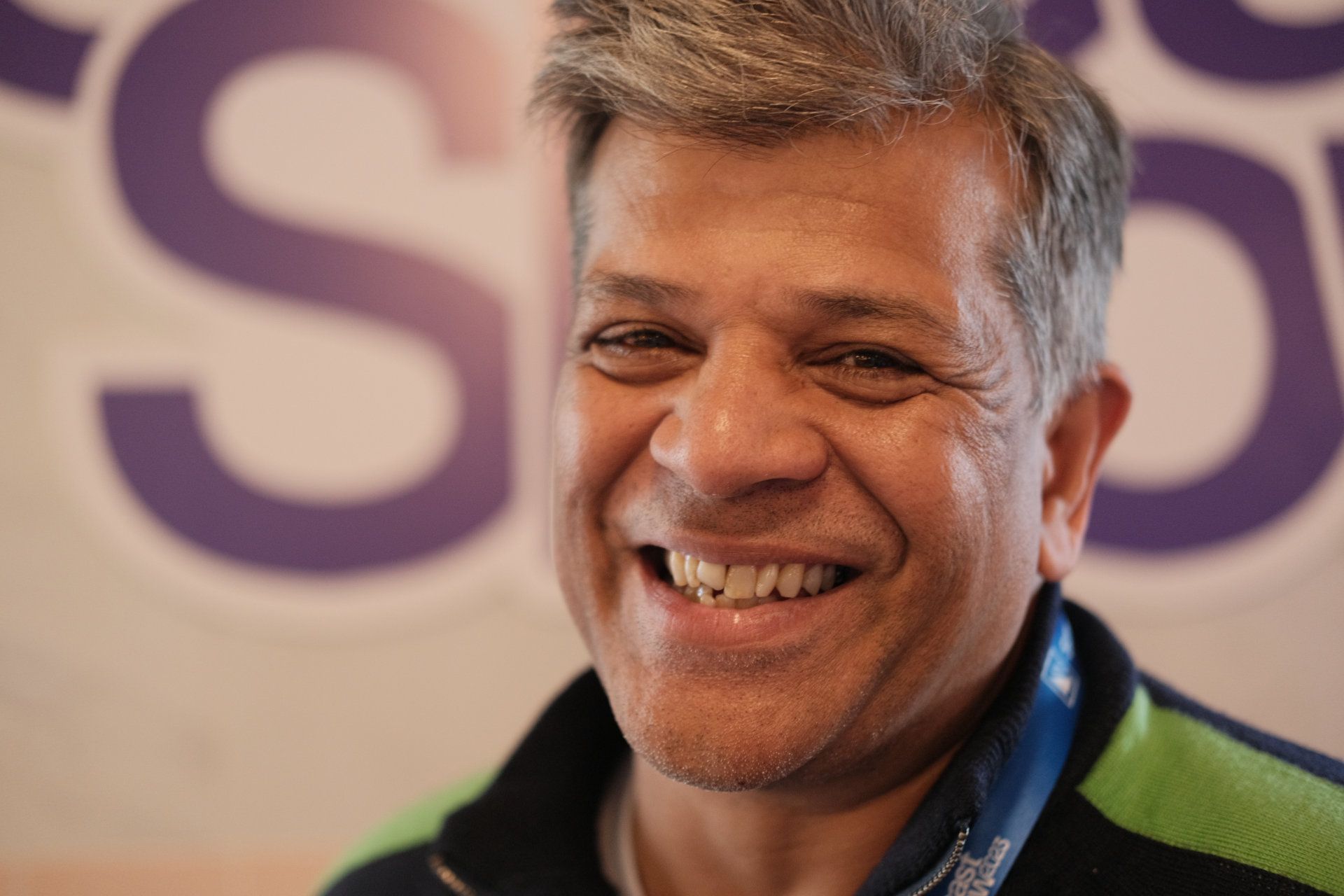
BB: How did you and Sam meet? How did you end up producing a weekly podcast?
JC: Well, Sam ended up inviting me to take part in a virtual podcast event that he was running. I'd actually heard of Sam for many years prior to that, but I don't think we had ever spoken. And so all of a sudden he says “Why don't we do a podcast together?”, and I was there thinking “Yes, that would be interesting, why don't we do a podcast together?”.
The first time that we met was nine months after we'd started the show, in podcast movement in Los Angeles. That was the first time that we had actually ever met face to face.
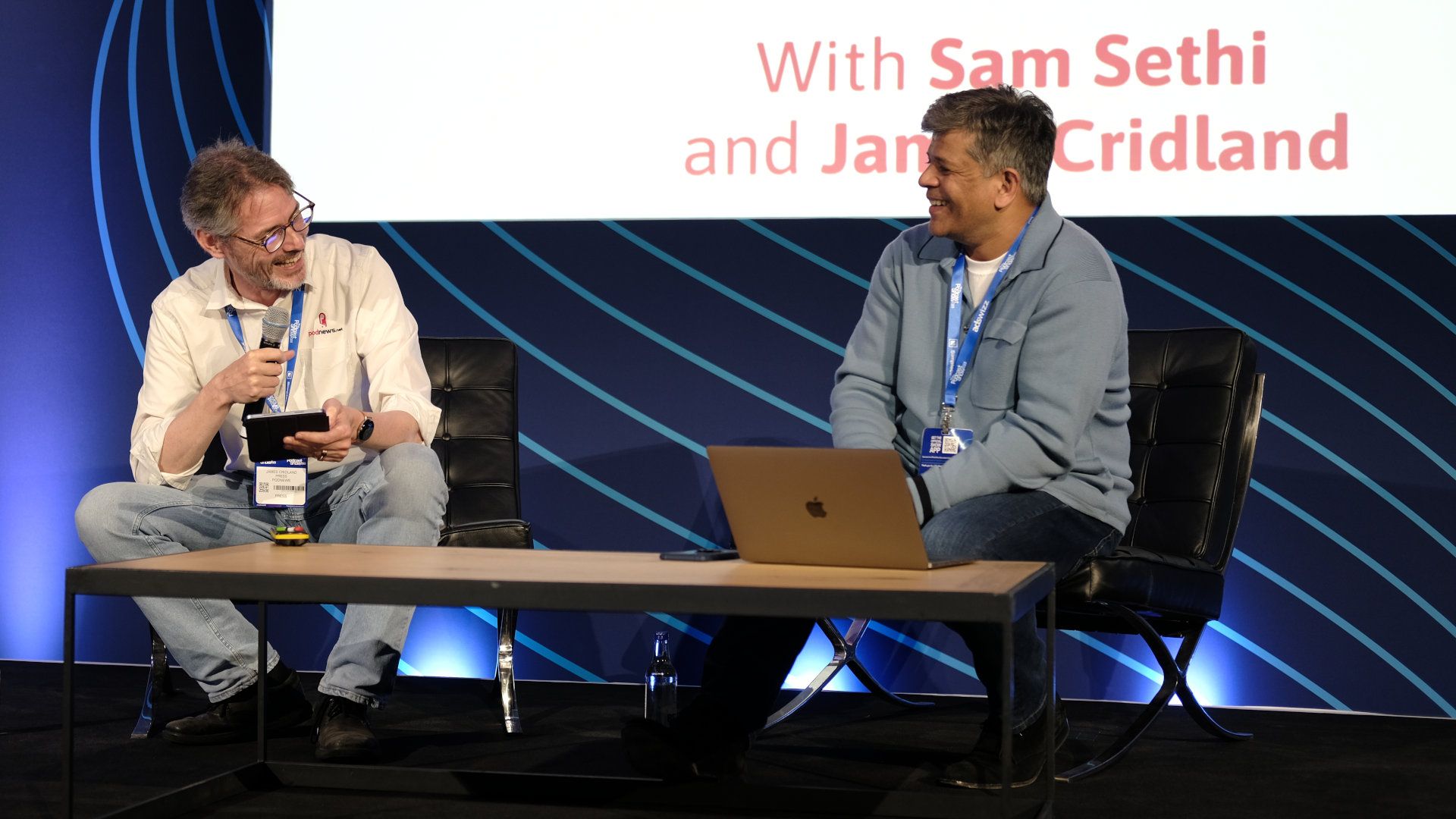
BB: In “Le Podcast Magazine” #2, I interviewed Adam Curry and David Jones about Podcasting 2.0. I've seen you very active in the podcasting 2.0 community. Do you consider yourself as a part of this movement, this community?
JC: I'm not a part of Podcasting 2.0, but I certainly help wherever I can. And whether that's making sure that some of the new podcasts that I'm covering are in the Index, because that's important. I enjoy playing around with technical stuff. I enjoy pushing the envelope, trying new things, trying new ideas. Those sorts of things keep me interested in the world of Podcasting. And so if there are interesting new ideas that I can very easily implement on my side, then I will absolutely do that. So that's been quite fun to end up doing.
But also quite fun to basically help promote what Podcasting 2.0 is doing. We have a section every Monday in the pod news newsletter called the Tech Stuff, and that focuses very much on the much more technical side of podcasting. It was only natural that if there are new and interesting things going on with RSS feeds and all of that, then I'm really excited to be involved in that.
BB: When were you aware of Podcasting 2.0's existence?
JC: Well, I was aware of the Podcast Index, which was the first thing that Adam and Dave were working on. And I was aware of that pretty early on. I've always been interested in the openness of podcasting and the openness of the podcast ecosystem. And that's exactly what Adam and Dave were talking about. I've always been sort of railing against the fact that Apple seems to be running the entire podcast ecosystem. Apple seems to have the only database of podcasts that was out there that anybody could actually use. And I was very keen that there was someone else in that field to help us and to help podcast app developers, and other people try something new and interesting. Then once Adam and Dave were talking about new features for RSS. I thought, well, this sounds exactly like the sort of thing that I'm really interested in. So everything that Adam and Dave have been doing has been really interesting to me.
BB: Adam Curry doesn't mince his words when he disagrees with someone, including you. Are you two getting along?
JC: Yes, I think so. Absolutely. He and I are very similar, actually. We both are very obsessive about what we are interested in. And that means that if people either don't get it or are willfully not getting it, then we will not be particularly happy about that. But what is exciting about the whole Podcasting 2.0 ecosystem is that actually people are incredibly passionate about what they are doing. And sometimes that means that people's ideas clash and that's actually great. I would much rather that than interminable meetings and people saying one thing and doing the other and blah, blah, blah. At least you know where you stand. So that's a good thing.
BB: Podcasting 2.0 is mainly about features. What are the things that really matter to you?
JC: From my point of view, transcripts is a big thing, so that you can actually see what was talked about in a podcast, but also closed captions that appear on a podcast app's screen. Those are really important, not just for accessibility and making sure that everybody can consume a podcast, but also they're important in terms of understanding what's in a show, understanding what people are talking about, trying to get a bit more of a grip on some of the things that are talked about in a particular show. That's really helpful, too. So the podcast transcript tag is a very important side of that. And, of course, that has coincided very much with AI and very freely available, at least in the English language, podcast transcription tools.
I have a particular soft spot for the location tag. The location tag in Podcasting 2.0 is about what this particular episode is about. So it's got nothing to do with where you record it, but it's much more to do with what the show is all about. I'm particularly interested, and there are very few people who have implemented it fully, but I'm particularly interested in the OpenStreetMap integration. Because that should enable you to go “I want to see all of the podcasts that are about museums in Paris”. Because OpenStreetMap has all of that information, and the podcast location tag also has all of that information. So you should be able to go “Every podcast about railway stations in Germany”. And it should be able to pull that kind of information out. And that will be really exciting.
There's a company that I'm an advisor for, called Maps.fm, which does a little bit of that but it's not using fully the podcast location tag. However, that is making an awful lot of geographical podcast content available and I'm super excited about where that might end up going.
BB: Yes, I don't think that you can fetch podcasts from OpenStreetMap yet.
JC: No, but what you can do is you can pull in from OpenStreetMap, “Give me a list of IDs that are museums in Paris”. And you can then look at that list of IDs and then look at the Podcast Index and go, “Which of these IDs actually exist in the index?”. Nobody is yet doing it. Partially because nobody is yet properly using it. I think Castopod is one of the only podcast hosting companies who is actually doing this. But if there were more companies using this, both in terms of location on an episode level, but also tying into OpenStreetMap, then you can actually pull all of that information out. And that would be a super exciting thing.
BB: You present yourself as a radio futurologist, how do you see the future of podcasting?
JC: Well we could sort of broaden this out and look at the future of radio as well. There are two things that are happening with audio.
So, yes, there's lots of music radio stations. The future for music radio stations that just play music is not particularly exciting. I don't think it's a very good future because there are much better technological solutions than a radio station to play you music that you would like, I'm afraid, at the end of the day. And I used to be a music radio DJ so I should possibly be one of the people that is most sad about that, but that is, I'm afraid, the way that things are going.
However, radio, the idea of live radio, the idea of feeling as if you're part of a community as you're listening to something, that shared experience and that human connection is a really important thing. And that isn't going to go away any time soon. Actually, when we have a look at radio consumption these days, then it's still incredibly high. Nine out of ten people are tuning into the radio every single week, in most countries. No matter how you calculate those figures — because every single country calculates them in a very different way — but it always comes down to nine out of ten people every single week are still listening in some way, shape or form. And that's a really good thing. I suspect, though, that we're going to see much more on-demand content, which means much more podcasting
and much more of that sort of thing happening. That's where podcasting comes in because typically we've had an experience on radio where it's been a local experience because that's all that radio can do.
If you have a transmitter which is in Lille, it'll broadcast to Lille, it won't broadcast much further than Lille. Therefore, your “raison d'être” is to broadcast to Lille. That is not something that podcasts excel in. Podcasts excel in communities, but communities of common interest rather than communities of location. Actually you can focus much more on really serving your audience. If your audience is really into underwater knitting, then great, here's the podcast for people who like knitting underwater. That's what podcasting can be really, really good at. And so I see very much the future of podcasting as being less mainstream shows — although there will still be large mainstream shows — but shows that are focused more on niche communities, communities of common interest. That's what podcasting can really benefit from.
And the fact that it's on demand, the fact that with new features we can have comments, we can have feedback from the audience, we can have all kinds of new and interesting, exciting things happening is very good for where the future of podcasting is going.
BB: I heard that you have a strong opinion about “RSS holding podcasting back”. Can you explain that to us?
JC: Yes, there are quite a lot of people, and quite senior people in podcasting, who have this real downer about RSS and say “If only RSS didn't exist, podcasting would be so much larger”. I'm always really surprised by that and I try to get to the bottom of what they mean.
“What is the problem with RSS?”
“Why is it holding podcasting back?”
“What is the alternative?”
Almost everybody who I talk to, it comes back to statistics, to measurement. Because they sell advertising, they want to know exactly how many people are listening, who they are, what they're doing, all of that kind of information. And that isn't part of the RSS system and it's very unlikely to be part of the RSS plan as you go forward, because there's no easy way of getting information back about your audience. And frankly, it's very unlikely that there ever will be, because you need app developers to put this kind of spying into their apps and then send it all the way back and everything else.
So really, what people are saying, when they're saying that RSS isn't the future of podcasting, what they're really saying is that “Open” isn't the future for podcasting. Because open RSS is what makes podcasting work. And if you take the openness away, because you want all of this spying on people to get really good measurement, then you take the whole open nature of podcasting away and that, I think, would kill the entire industry. Because the whole excitement of podcasting is that I can podcast from this room in Australia and I can be on the same platform as Joe Rogan, I can be on the same platform as the Daily from the New York Times or any of the other “Choses à savoir”, any of the other really large shows. That's what makes podcasting exciting to me.
BB: Do you think Spotify will renew Joe Rogan’s contract?
JC: Oh, I would have thought that Joe Rogan's contract is going to be really interesting to watch. I would guess that Spotify probably will. It's still the number one show. The latest Top 50 podcasts has just come out from Edison Research and they say that Joe Rogan Experience, again, number one. So I'm sure that Spotify would like to hold on to him. But I would also imagine that Joe may be interested in getting more ears hearing his stuff. And so, therefore, that might mean that he might be interested in something which is a bit more open or potentially even looking at somebody like YouTube or someone else to actually partner with. So it will be interesting to see whether or not Joe Rogan is still an exclusive this time next year. I suspect that he'll still be with Spotify, but I suspect that we will be able to hear his excellent podcast, he says, on many other platforms other than just the Spotify platform.
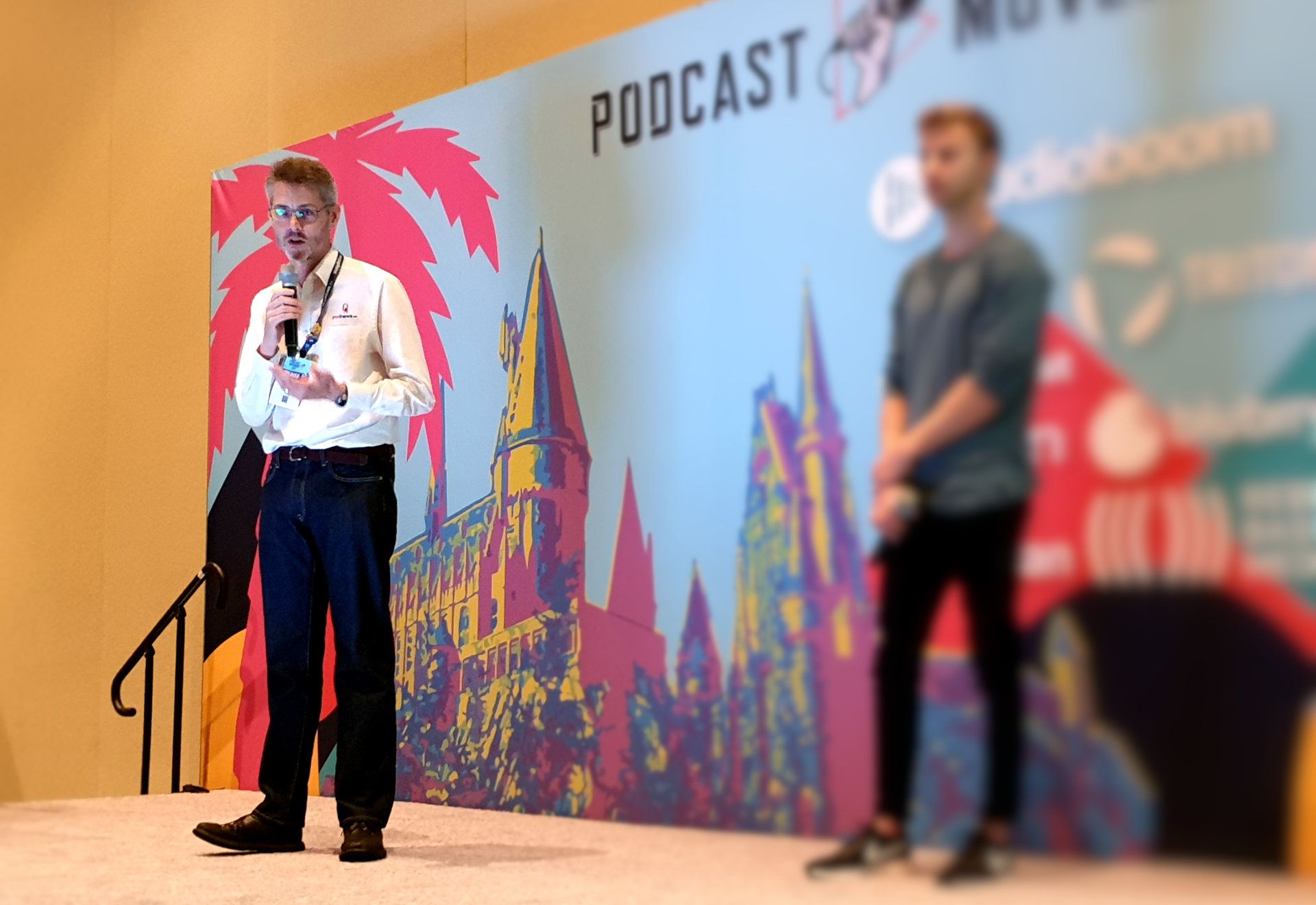
BB: But whether it's Spotify or YouTube, aren't you afraid that these platforms are going backward and against the openness of the RSS feed?
JC: I think that YouTube, as it currently stands, is a really bad thing for podcasting, if we see YouTube as being where the future of podcasting is going. If it's another place to sling your podcast and make sure that a few people have a listen to it, then great, that's fine, I don't see a problem with that. But if YouTube becomes the predominant way that we consume podcasts, then most people in podcasting will be out of a job.
There won't be any advertising sales for podcasts because YouTube will be doing that.
There won't be any podcast hosting companies because YouTube will be doing that.
There won't be any of these things going on because YouTube will swallow all of that up because they're not part of the open RSS experience.
Spotify, for all of its people saying how bad it is, it's still part of the open podcasting experience. I can still be there if I want to be. Now, sure, they've got exclusives and stuff like that as well, but the fundamentals are that they still come and take my show from my MP3 hosting company and I can still reach all of the people who are using that particular app without any extra work. Very different world once you come into the whole YouTube environment and it worries me in terms of what it might mean if YouTube is very successful.
Having said that, it is Google's fourth attempt at trying to understand how to play podcasting. They've failed in the previous three, so doubtless they'll fail on this one as well. I think Google is very good at one thing and one thing only and that's search and they haven't actually launched a big product in the last 10 years, which is an astonishing thing to actually realize that the last massive launch that they had, well, I mean it was Google Plus and see what happens to that. So that we're relatively safe. I think that Google will mess this up as they've messed everything else up over the last 10 years, but who knows what the future might be.
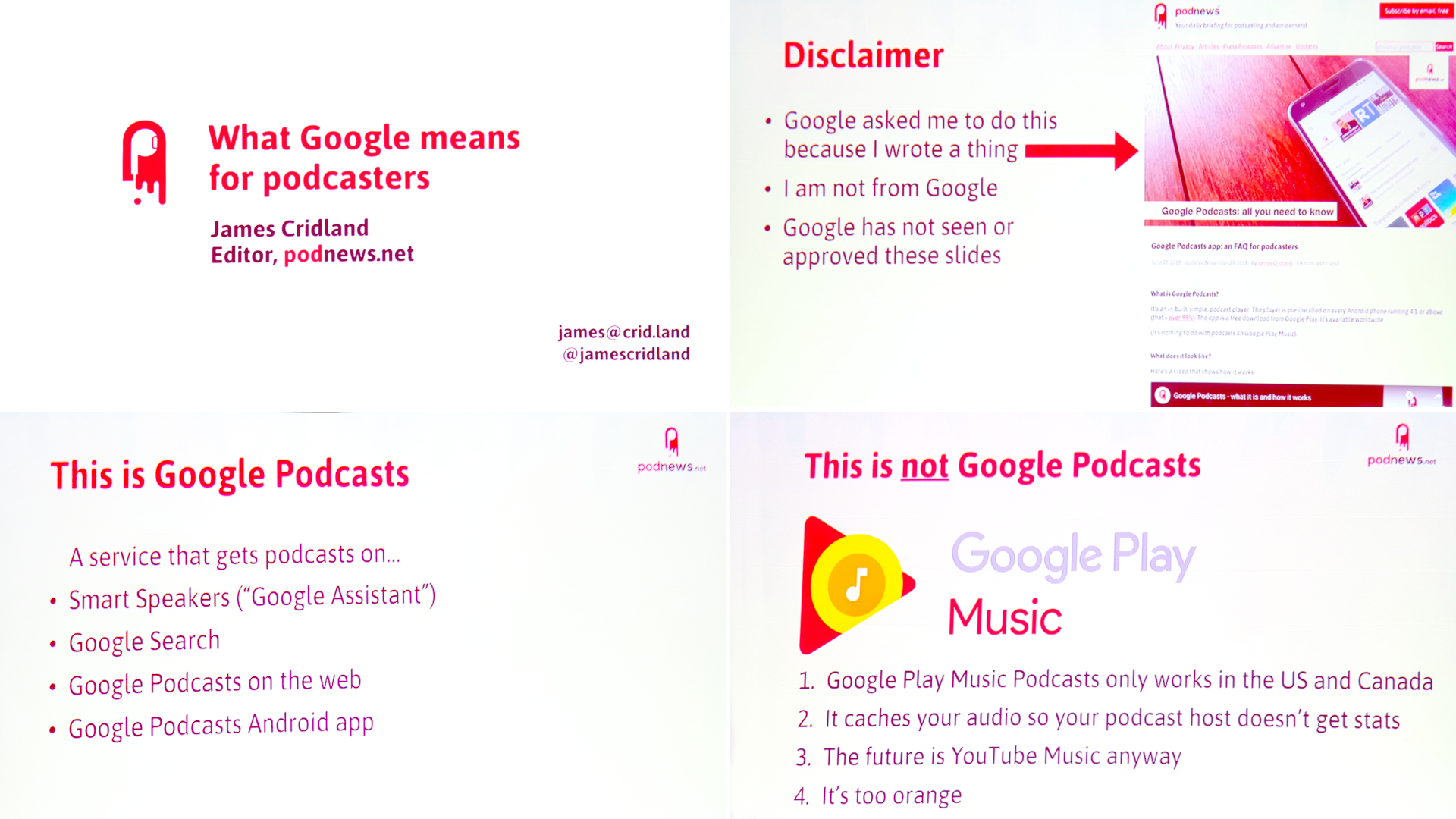
BB: When I was preparing this interview, I was looking at all the pictures I took of you to illustrate this article, and the first one I found, from Podcast Movement 2019, was you talking about Google Podcasts.
JC: Yes, that was a very peculiar thing. They ended up saying, “We've been given a session to speak about Google Podcasts, but company policy is we're not allowed to present at conferences. So you can have me up as a speaker to answer questions, but please could you talk about what Google Podcasts is?”.
And I said, yes, that's fine. What do you want me to say?
“Oh, we're not allowed to tell you that either. Just tell people what you think of Google Podcasts.”
But I was genuinely very excited about Google Podcasts. I was genuinely very excited about what that could have meant for podcasting if Google had actually done it right. And sadly, Google didn't do it right. And that never took off for a large variety of reasons. But I actually thought that this was going to be the time when Google got it right. But sadly, not quite to be.
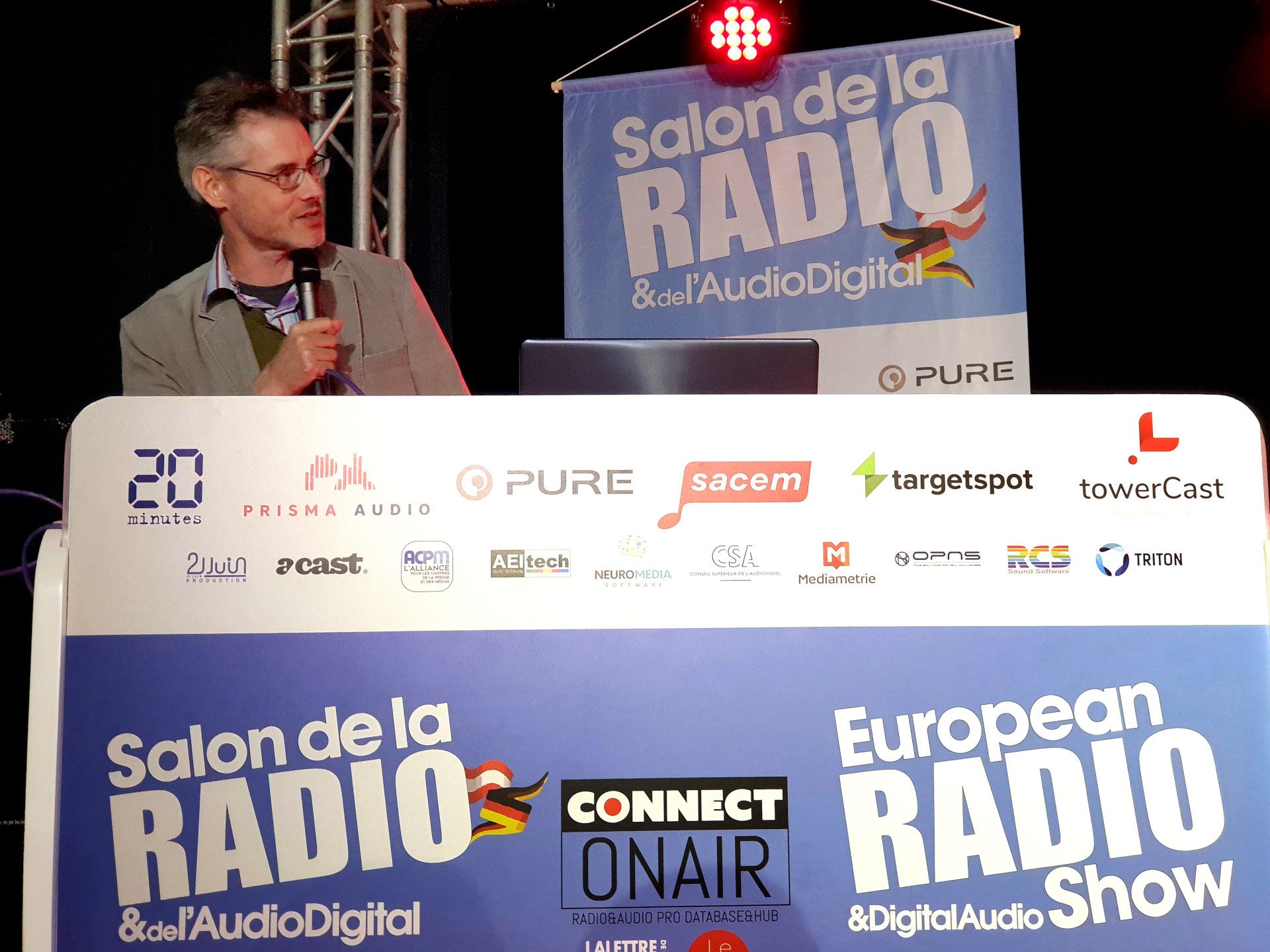
BB : You were at Le Salon de la Radio in Paris in January 2020, what did you think of it?
JC: That was a great event, actually, a really enjoyable event. I remember how vibrant the French podcast industry was and how different it is. As an English person looking into the French podcast landscape it’s very clear that French people like to use French companies. And so there were lots of companies there who I was unaware of. And of course, some of them are now owned by much larger American companies.
BB: One last question, as an expert in audio content, what advice would you give to French aspiring podcasters?
JC: In terms of general advice, making sure that things are consistent, making sure that you understand what your podcast is there for, what problem it solves for the audience, and making sure that it's there absolutely consistently every day, every week, every month is really important.
So that's the advice that I give an awful lot of podcasters.
Particularly for the French language market, you have a real opportunity in that there are millions and millions of English language podcasts out there. There are far, far fewer French language shows out there. There are real opportunities to own a particular part of podcasting, to own a particular subject, to own a particular niche, because there are far fewer competitors out there. And there's real opportunity to have a look at the French language market from that point of view.
And the only other thing that I would say in terms of advice specifically for French language shows is to work together more closely with your friends and colleagues in radio. It's very strange that France, and France alone has this concept of a “native podcast” and of a radio podcast. It's a peculiarly French thing. And I wish that there was more working together with the incredibly talented people who work in French radio and the other side as well. And so tying all of this back to the Radio Show in Paris in very early 2020, one of my sessions was “10 things that radio can learn from podcasting and 10 things that podcasting can learn from radio”. And it was a really enjoyable session and I'd love to do more of those in the future because I think there's real opportunity for people who love great audio to work together far more.
All pictures (CC) BY-SA 4.0 by Benjamin Bellamy


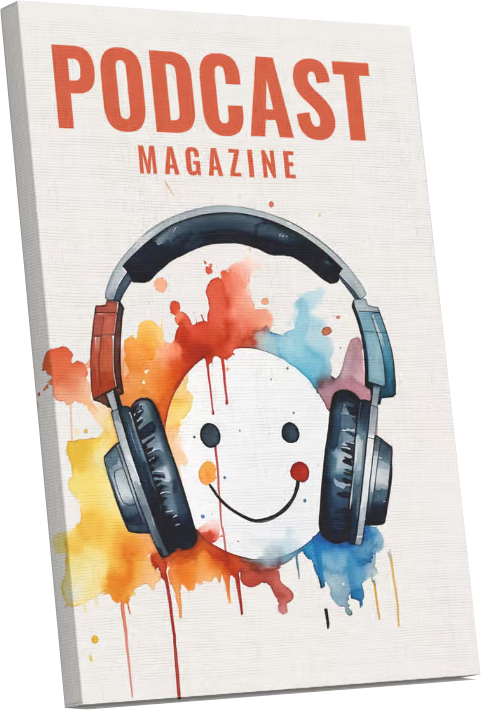 🇫🇷 Vous pourrez retrouver cet entretien en Français dans le numéro 3 de
🇫🇷 Vous pourrez retrouver cet entretien en Français dans le numéro 3 de 


